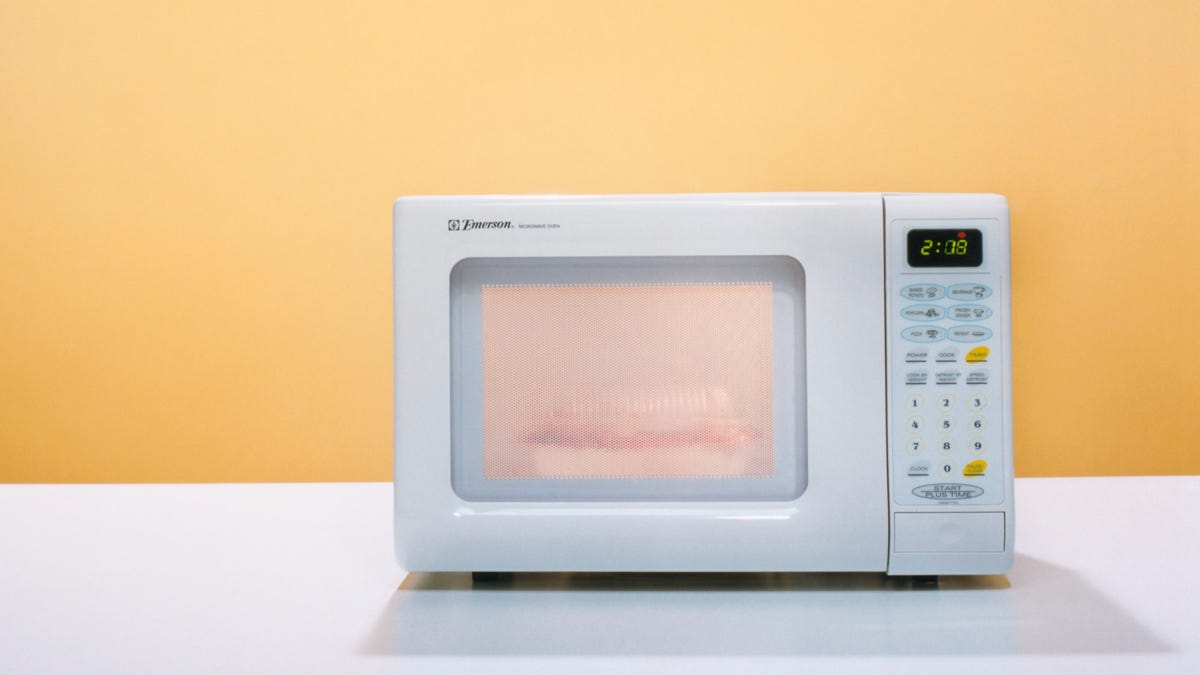 Why You Can Trust CNET
Why You Can Trust CNET Stop Putting These 5 Foods in the Microwave
Avoid exploding food and dangerous chemicals in your microwave.

Turns out you can't heat up everything in the microwave.
When it comes to kitchen appliances, microwaves are one of the most handy -- who hasn't had to quickly heat up some leftovers or warm up a cup of coffee (even if both of those are taboo to some)? But there are some things that you should just never put in the microwave, ever. Certain materials and foods can cause sparks, and microwaving others can leach chemicals into your food and even set off explosions.
Here are five things you should always keep out of the microwave. (For more kitchen tips, check out how to try every meal kit for cheap, and how to save the food in your fridge if it breaks or if the power goes out.)
Certain plastics
When microwaved, some plastics leach BPA and phthalates into foods. These chemicals, and BPA in particular, can disrupt your body's hormones, and have also been linked to obesity, diabetes and reproductive system problems.
Many containers used to package foods, such as butter containers and yogurt tubs, are not microwavable. However, some manufacturers have switched to BPA-free plastics and may be safe to microwave. Bottom line: Always look for a microwave-safe label before popping a container in to nuke.
Plastic bags
You should never microwave food inside plastic bags. Steam can build up in bags, causing them to explode. The bags also have the potential to melt. So if you're reheating your takeout, remove it from its bag and packaging first, and put it on a microwave-safe plate.
Vintage plates and mugs
According to the Smithsonian, microwaving in old plates and mugs that are over 40 years old can cause lead from the glaze to seep into your foods. You can test your old tableware with lead testing kits to make sure this isn't a threat.
Keep those vintage plates, bowls and cookware out of the microwave.
Metal
You've probably heard you should never put metal in the microwave, but do you know why? Metal reflects microwaves.
If you cover your food with aluminum foil, for instance, the microwave will bounce off the foil and your food won't warm. The reflected waves can also damage your microwave. Items with pointed ends, like forks, can produce a concentrated electric field and create sparks, according to MIT.
Hard-boiled eggs
Microwaves cook very quickly. So quickly, in fact, that the steam inside the egg builds up too rapidly. Eventually, too much steam builds up and the egg explodes. So don't put a hard-boiled egg in the microwave (or a raw egg that you're trying to hard boil), because you'll end up with a big mess on your hands.
Want more help cleaning up in the kitchen? Check out how to clean your cast-iron skillet, and how to clean your reusable water bottle.

